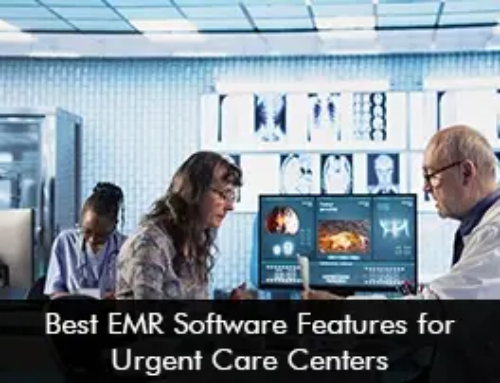Staffing shortages are a grave issue being faced by every industry and healthcare is no exception. The healthcare sector is moving many of its processes into digital formats. Healthcare organizations can enhance efficiency levels by implementing Electronic Medical Records (EMR) Software to store protected health information (PHI).
Importance of HIPAA Compliance and patient safety
There are many benefits of deploying an EHR system, the robust software technology helps to streamline daily clinical, administrative, and financial workflows. EMR solutions help physicians to focus on patient care and the automation of tasks helps to combat burnout and also reduce the chances of human errors making way for patient safety. The ECRI Institute revealed that patients are concerned about healthcare organizations safeguarding their PHI. HIPAA Compliance legally requires healthcare providers to protect PHI. Healthcare organizations should go beyond the Portability and Accountability Act to protect patient health data. To steer clear from data breaches it is in the best interest of organizations to select a HIPAA-Compliant EHR software vendor to offer reliable security and maintain patient trust. Healthcare organizations must stay on top of the patient security game by complying with the law and observing the right security protocols.
How to maintain patient trust?
Maintaining patient trust when it comes to PHI is vital as it can help retain your patients and stay loyal to your practice. Providers should regularly assess internal procedures to improve EHR security this can be done by adopting the following measures:
Provider processes surrounding EMR Software:
- Identify PHI and de-identified PHI uses.
- A process should be created for patients to evaluate their records.
- Procedures for the request of information should be created by a third party such as the judicial system.
- Establish information that cannot be segregated or transferred.
The Electronic Health Records Software:
- Access controls and tasks require to be assessed.
- Unique and difficult usernames should be used.
- Safeguards should be established to verify the identity of the user.
- Threats to PHI should be analyzed consistently and the healthcare organization should consider trends and technology.
- Procedures should be audited.
- Update any outdated policies, technology, and processes to optimum security.
Best practices for EHR Software users
When an EMR Software system is initiated establishing the right security protocols is necessary. Following are the basic EHR solution best practices,
- Notify when adding or removing other EHR software users within a day.
- Any data requests should be reported to the facility without any delays.
- For the best data security, safeguards should be created within the user’s office, if there are any breaches the technical staff should be notified immediately.
- Observe HIPAA Compliance for maximum security.
Informing patients
Once the right security policies have been adopted it is in the best interest of the practice to inform patients about the updated privacy protocols and how it will benefit them. For patient awareness pamphlets and flyers can be distributed in the doctor’s waiting room. Digital strategies can also be used such as informing patients via Email, video, ads, and updated blogs on the official website. Once patients know that their PHI is protected it will help to increase patient trust and retention.








